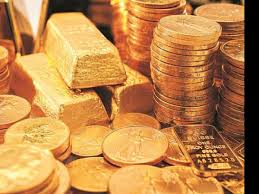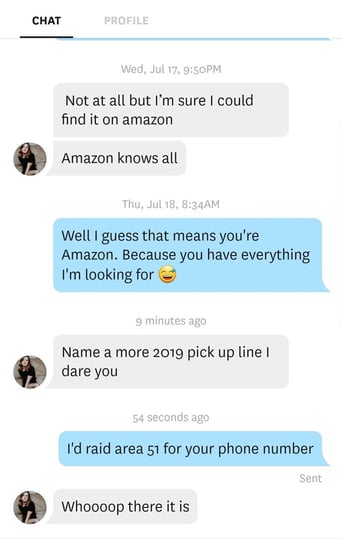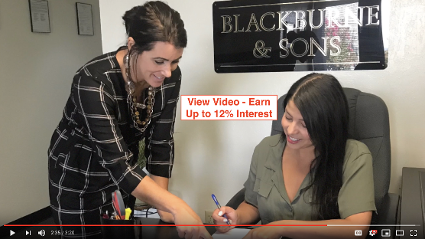 The price of gold shot up sharply this week, and then it quickly fell back down. It is wise to always keep an eye on the price of gold because it is a harbinger of danger.
The price of gold shot up sharply this week, and then it quickly fell back down. It is wise to always keep an eye on the price of gold because it is a harbinger of danger.
The word harbinger is an interesting word that means a person or thing that announces or signals the approach of another. Synonyms include: herald, sign, indicator, indication, signal, prelude, portent, omen, augury, forewarning, presage, and announcer. In the old days, the harbinger was the advance guy who went ahead to find lodgings for his noble and his retinue.

The lovely wife go the BIGGEST kick out of the above meme. Haha!
I was discussing gold's recent price swings with my son, Tom, and he replied, "Gold may be going up because of inflation." Maybe. Maybe not.
The reality is that gold is NOT a great hedge against inflation. Let me explain.
It's true that gold usually increases in value as inflation increases, and many investors think they need to buy gold when inflation is raging. The problem with gold, however, is that it does not generate income.
Stocks (equities) and real estate also increase in value when inflation rages, plus stocks and real estate generate income. Stocks pay dividends, and real estate throws off positive cash flow.

And it's not as if gold increases much more in value, during inflation, than stocks and real estate. Suppose gold went up 10% during periods of painful inflation, but stocks and real estate only went up 5%. Then it might make sense to buy gold as an inflation hedge. But nope, this doesn't happen in real life. The three asset classes (stocks, real estate, and gold) pretty much go up together in lock step.
Therefore it makes little sense to buy gold during periods of inflation. You are giving up dividends and net rental income.
Gold really shines, however, during periods of deflation. There is an important concept that I want you to truly understand and commit to permanent memory: Gold cannot default.
Suppose a huge earthquake, The Big One, leaves much of Southern California in ruins. Bridges collapse. California factories that supply vital parts to the rest of the country crumble to the ground, bringing much of the nation's industrial production to a screeching halt. The U.S. economy contracts sharply, and the financial markets implode.
Almost one-hundred S&P 500 companies file for bankruptcy, many never to emerge again. Their stock and debenture prices fall to almost zero.
Interest rates on commercial paper skyrocket to loan shark levels. Commercial paper is an unsecured, short-term debt instrument issued by a corporation, typically for the financing of accounts payable and inventories and meeting short-term liabilities. Issuing commercial paper is slightly cheaper than borrowing from a bank, so many of our larger corporations issue commercial paper instead.

The State of California defaults on its bonds, followed by hundreds of municipalities across the country. Most municipal bonds, even those issued by solvent cities, fall 85% in value, as investors panic.
Nobody wants paper investment instruments anymore - stocks, commercial paper, corporate bonds, municipal bonds, or even state bonds - for fear the issuer will go bankrupt or default. Investors flee to U.S. Treasuries, cash, and ... gold.
Why gold? Because gold is not the debt of another. One more time. Gold is not the debt of another. Gold cannot default!

Everyone should own a handful of one-ounce gold coins, Maple Leaf's or Kruggerrands, and they should keep them in their Go Bags, along with some actual cash. A Go Bag (also known as a Bug-Out Bag) is an emergency-preparedness bag that you pack in advance, but you hope you will never need. Your emergency kit should be self-contained in one small or medium-sized bag and should contain enough nonperishable food and potable water for you and your family to last several days.
Even during a history-book-level of crash, like the The Big One finally demolishing California, gold funds may not fare as well as you might think. The reason why is because such an event will cause a panic, and in a panic, everything is for sale.
Reminder:
There is a different gold rush going on. Mortgage brokers are rushing to get their favorite bankers signed up on C-Loans.com, and thereby earn 20% of our fee on the first three loans closed by their bank. One mortgage broker, Arnold Taylor, has added almost 30 banks to C-Loans in the past two weeks alone. Arnold will be earning big fees from this for years.

It's very easy. Just call your favorite banker and explain that C-Loans delivers carefully screened commercial real estate loans that perfectly fit his preferences. The bank merely has to bump its normal loan fee from 1.0 point to 1.375 points in order to cover our software licensing fee. Next please email to your banker our Commercial Lending Preferences form. Finally send an email to Tom Blackburne and register the banker with him. We'll close the sale.
It's a gold rush. It's a land rush. Settlers are whipping their horses and driving their Calistoga wagons like crazy to be the first to register their bankers. But you MUST call your banker first and make the verbal offer. It doesn't matter if he says yes at the moment. Just get your banker registered with us, along with your best understanding of his commercial lending programs.
And if you haven't used C-Loans.com recently, you will be thrilled with all of our new commercial lenders, including a dozen new hungry credit unions lending nationwide. I love-love-love credit unions for commercial loans because they are so aggressive and forgiving.





















